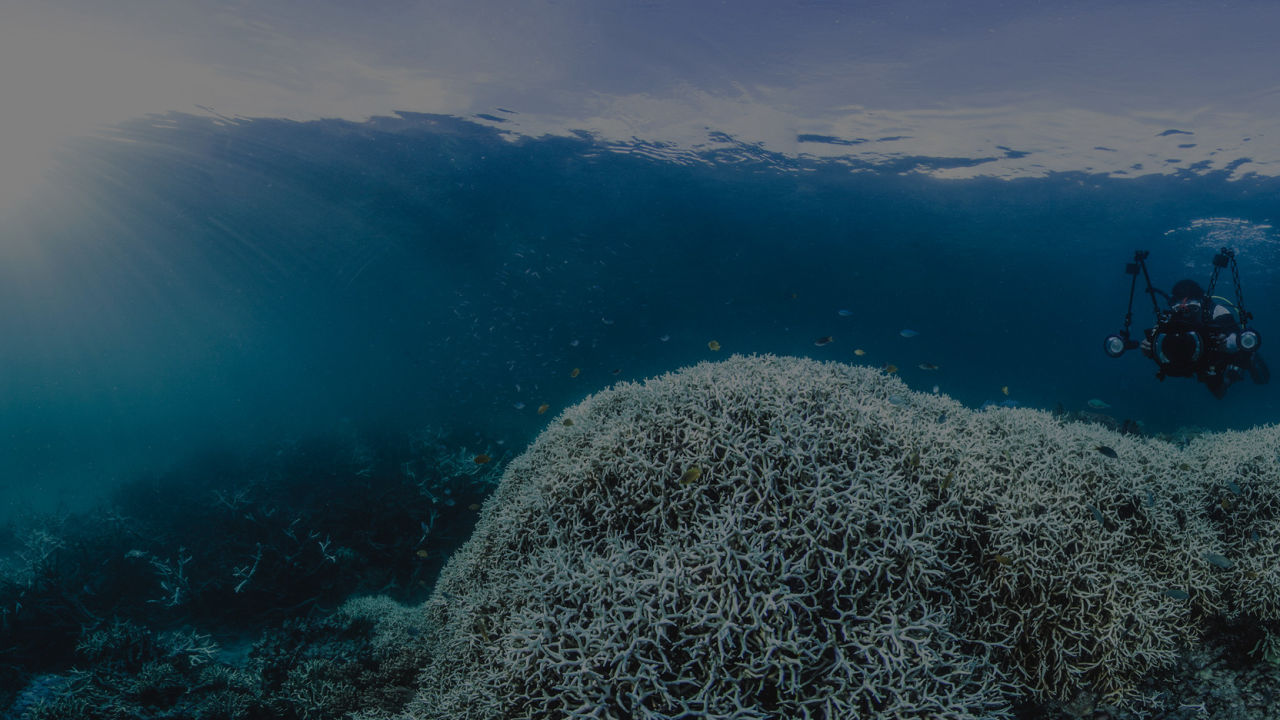Indeed past biodiversity crises in reef ecosystems do appear to coincide with episodes of rapid global warming and OA. G lobal warmings rapid desiccation of the Great Barrier Reef has taken an even more substantial and permanent toll than previously understood a.
 Microalgae Could Protect Coral Reefs From Climate Change
Microalgae Could Protect Coral Reefs From Climate Change
Climate change is the greatest global threat to coral reef ecosystems.

Coral reef global warming. Global warming is killing coral reefs. But bleaching is disastrous for coral reefs because the algae provide about 90 percent of the corals. However coral reefs have suffered significantly from anthropogenic impacts such as global warming ocean acidification pollution and overfishing Hoegh-Guldberg et al 2007.
Coral are extremely sensitive. Global warming coupled with an intense El Nino continues to make this the longest and most widespread coral bleaching event on record. Coral reefs have seen above normal temperatures and more than 70 percent of them have been exposed to the prolonged high temperatures that can cause bleaching.
Although coral reefs worldwide face threats from global warming including marine heatwaves that bleach and kill coral storm runoff could prove a. Students download temperature and satellite data files for coral reef sites around the world. Global warming is killing coral reefs.
Climatologists here at Bremen Universitys Marum Center for Marine Environmental Sciences are particularly interested in the last dramatic instance of global warming. Bellwood et al 2012. Scientific evidence now clearly indicates that the Earths atmosphere and ocean are warming and that these changes are primarily due to greenhouse gases derived from human activities.
Since its onset all US. Hughes et al 2018a. They are among the most threatened ecosystems on Earth largely due to unprecedented global warming and climate changes combined with growing local pressures.
Marine heat waves caused by global warming are killing off the corals of Australias Great Barrier Reef the worlds largest reef system according to a. Even if global warming is limited to the 15 degree Celsius target outlined in the 2016 Paris Agreementa longshot goal at the current rate of emissionsthe IPCC now concludes that almost all. They then graph and analyze the.
Global warming and ocean acidification OA are compounding these threats. Global warming is rapidly emerging as a universal threat to ecological integrity and function highlighting the urgent need for a better understanding of the impact of heat exposure on the. The renewed bleaching of the worlds largest reef confirms that coral reefs globally are in big trouble said scientists many of whom reported that.
Wenger et al 2015. Cohen4 Many physiological responses in present-day coral re efs to climate change are interpreted as consistent with the imminent disappearance of modern reefs globally because of annual mass bleaching. A new study provides further evidence that climate change is adversely.
Coral Reefs Could Be Gone in 30 Years. Projecting Coral Reef Futures Under Global Warming and Ocean Acidification John M. A temperature difference of just two or three degrees is enough to put them in danger NARRATOR.
This activity allows students to use authentic scientific data to make claims about the threat of coral bleaching for reefs around the world. World Heritage reefs will die of heat stress unless global warming is curbed a new UN study finds. A study published in mid-2012 also found that coral reefs face severe challenges even if global warming is restricted to a 2 degrees Celsius rise which many countries are struggling to agree to meet on given the way climate negotiations have been going for the past decade or more.
Although coral reefs worldwide face threats from global warming including marine heatwaves that bleach and kill coral storm runoff could prove a more serious and immediate threat to reefs. That can happen because the water is too warm or too cold or because of extreme low tides. Coral reefs harbour the highest biodiversity of any ecosystem globally and directly support over 500 million people worldwide mostly in poor countries.